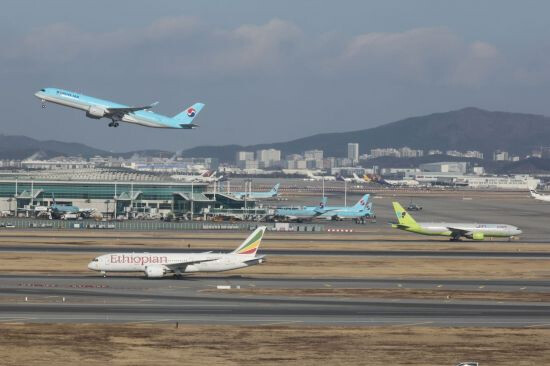
Incheon, South Korea – A tragic incident unfolded today, June 1, as a 30-year-old Filipino mother gave birth to a baby aboard an international flight arriving at Incheon International Airport, only for the newborn to tragically die. The unique circumstances of an in-flight birth and the shocking outcome of the infant's death have drawn significant public attention.
Urgent In-Flight Situation and 119 Call
According to the Incheon Airport Police and 119 emergency services, a distress call was received at 6:44 AM today, stating, "A baby was born on the plane, but it's not breathing." Responding quickly, 119 paramedics found the newborn in cardiac arrest and immediately transported the infant to a nearby hospital. Tragically, the baby could not be resuscitated and was pronounced dead.
The flight in question was a Jeju Air plane that departed from Clark Field, Philippines, and arrived at Incheon Airport around 6:21 AM. The mother was reportedly transiting through Incheon International Airport with her husband, mother-in-law, and daughter on their way back to Saipan after a trip to the Philippines.
Risks of In-Flight Births and Airline Response
In-flight births are rare but can occur as an emergency at any time. Airlines typically have regulations regarding pregnant passengers, often recommending a doctor's note or restricting travel based on the gestational period. Jeju Air, for instance, requires pregnant passengers at 32 weeks or more to submit a doctor's certificate and a waiver, while those at 37 weeks or more are restricted from flying. The exact gestational age of the mother in this incident is currently unknown, but it's likely she was close to term.
During an in-flight birth, a doctor is often not present, making the initial response of airline crew critically important. While flight attendants receive first-aid training, they may lack specialized medical knowledge for childbirth. Furthermore, the cramped cabin space and limited medical equipment can hinder emergency responses. It is expected that an investigation will be conducted into the specific actions taken by Jeju Air crew members and whether any medical professionals, such as doctors or nurses, were on board the flight.
Investigation into Newborn's Death and Police Inquiry
The police plan to request an autopsy from the National Forensic Service to determine the exact cause of the newborn's death. They are also conducting a multifaceted investigation into the mother's health condition, the in-flight response during childbirth, and whether the mother was aware of her pregnancy. Of particular importance will be whether the airline properly adhered to its regulations for pregnant passengers and if appropriate monitoring of the mother's condition was carried out on board.
If it's revealed that the mother intentionally concealed her pregnancy from the airline, or if the airline was negligent in enforcing its pregnant passenger regulations, legal liability could arise. However, the current focus is on the tragedy of an unfortunate accident, and the investigation will proceed carefully, keeping all possibilities open.
Re-evaluating the Importance of Pregnant Passenger Management During Air Travel
This incident serves as a crucial reminder of the importance of managing the health of pregnant passengers during air travel and airlines' adherence to relevant regulations. Pregnant individuals can be affected by various factors during flights, such as changes in cabin pressure, lower oxygen levels, and the risk of blood clot formation due to prolonged sitting, all of which can impact the health of both mother and fetus. Therefore, it is essential for pregnant individuals to consult with their doctor before air travel to confirm their fitness to fly and to be aware of the airline's regulations for pregnant passengers.
Airlines, too, should strive for more thorough management of pregnant passengers and establish swift and professional emergency response systems. It is hoped that this tragic incident will spark active social discussions about the safety of pregnant passengers during air travel and lead to improvements in related regulations and systems.
[Copyright (c) Global Economic Times. All Rights Reserved.]






























